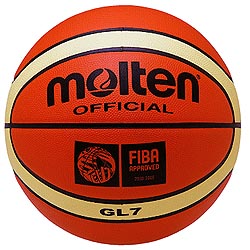STL readers may remember the patent infringement and false advertising case of Baden Sports, Inc. v. Kabushiki Kaisha Molten and Molten U.S.A., Inc., that went to trial in the Western District last August. The jury awarded Baden more than $8 million to compensate it for Molten’s intentionally falsely advertising that its basketballs were “innovative technology that is proprietary to Molten.” (STL’s posts on the case here, here and here.)
Following the jury’s verdict, Molten moved for judgment as a matter of law on the ground that Baden’s false advertising claim as presented to the jury should be vacated because the claim is barred by the Supreme Court’s decision in Dastar Corp. v. Twentieth Century Fox Film Corp., 539 U.S. 23 (2003).

On Jan. 28, Judge Marsha Pechman denied the motion. Explaining the decision, the court stated: “Dastar held that a false advertising claim under § 43 of the Lanham Act cannot be based on inventorship or ownership of a product. In its order granting in part and denying in part Molten’s motion for summary judgment on Baden’s Lanham Act claims, the Court concluded that Dastar does not bar Plaintiff’s false advertising claim based on Molten’s advertising that its product or technology is ‘innovative’ because ‘whether something is ‘innovative’ does not turn on who owns or offers a product.’ ‘[A]ny advertising indicating that Molten’s ‘Dual Cushion Technology’ is ‘innovative’ or new relates, not to the inventor of Molten’s basketball technology, but to the ‘nature, characteristics, [or] qualities’ of the basketballs themselves.’ Molten argues that despite the Court’s ruling, Baden presented evidence at trial that confirms that its Lanham Act claim is merely an inventorship claim, i.e., a claim that Molten falsely advertised its dual cushion technology as its own, rather than Baden’s invention.”
“The Court instructed the jury regarding Baden’s Lanham Act claim in a series of instructions. In its ‘Unfair Competition’ instruction, the Court explained that ‘Baden Sports claims Molten Corp. and Molten USA advertised their ‘dual cushion’ basketballs as a Molten innovation and they were not. The Court also instructed that to prevail on their false advertising claim, Baden must prove that ‘in advertisements, defendants made false statements of fact about their own product….”
“Several witnesses testified that Molten falsely advertised its ‘dual cushion technology’ as a Molten innovation. Although some of that testimony indicates that the witnesses believed that Molten’s advertising was false because Baden actually created the patented design, not Molten, other testimony makes clear that the witnesses believed the advertising was false because Molten’s product was not ‘new.’ The fact that witnesses used Baden’s prior design as evidence to show that Molten’s product was not innovative or new does not mean that Baden was actually basing its false advertising claim on the allegation that ‘Molten didn’t make it, we did.’ The Court concludes that Baden’s false advertising claim, as presented to the jury, does not run afoul of Dastar.”
The case cite is Baden Sports, Inc. v. Kabushiki Kaisha Molten, 2008 WL 238593, No. 06-210 (W.D. Wash. Jan. 28, 2008).